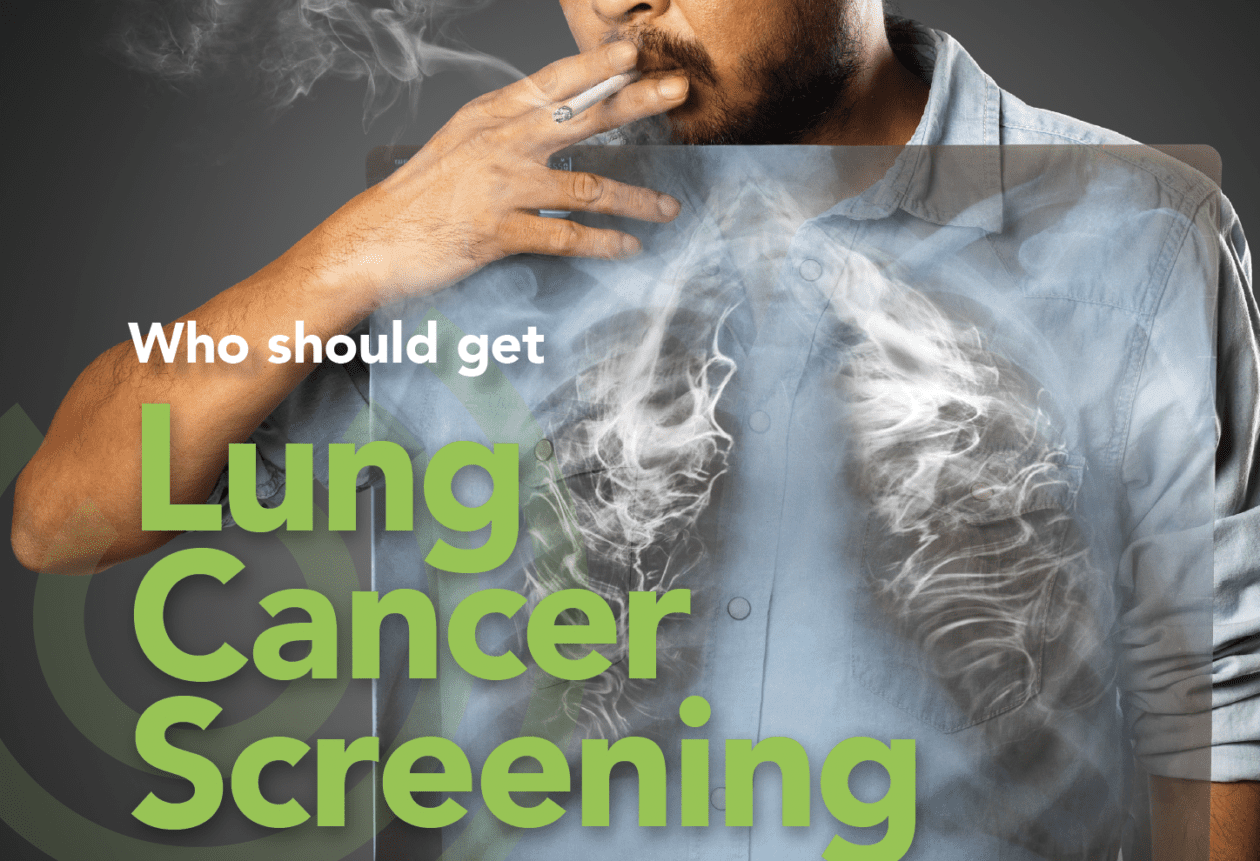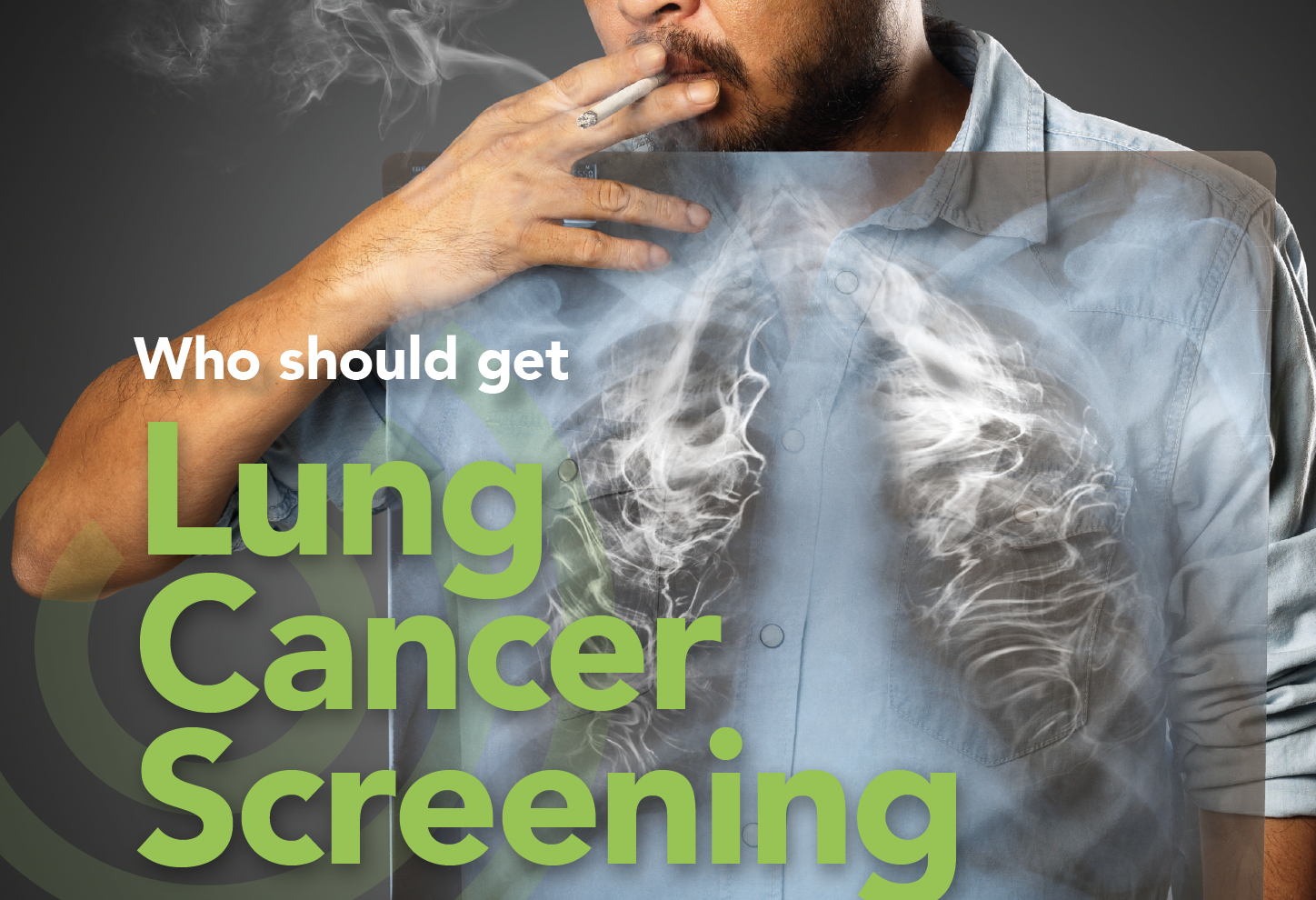

Based on new research, last year the United States Preventative Service Task Force expanded its
recommendation for annual lung cancer screening to include a larger age range and more current and
former smokers.
Screening is now recommended for anyone age 50 to 80 who has smoked for 20 years or more, and who
currently smokes or has quit within the past 15 years. A pack year is equal to smoking 20 cigarettes (1 pack) a
day each year. A pack year is different from a calendar year. Smoking a pack a day for 20 years equals 20 pack
years, but so does smoking two packs a day for 10 years.
The new guidelines dramatically increase the number
of women and Black Americans considered at high risk for lung caner. In Florida, only 3% of people at high risk
were screened last year, which was significantly lower than the national rate of 6%, even though Florida has
improved across to screening by covering it through its fee-for-service Medicaid program.
A low-dose computed tomography (LDCT) scan takes X-rays and combines them into a detailed,
3-dimensional image. LDCT screening can reduce lung cancer deaths by up to 20% compared to standard
chest X-rays, by detecting tumors at early stages when they are more likely to be curable.
Lung cancer screening is approved by Medicare and is for people in good health who do not have symptoms
of the disease. However, some insurance companies do not yet use the new age guidelines. Talk to your doctor
if you think you are eligible for testing.
Quitters can be Winners
Smoking is the single most important risk factor for lung cancer. Tobacco Free Florida provides free tools
and services to help you become smoke-free. Go to TobaccoFreeFlorida. com or call 850-245-4144.
For more resources, go to Smokefree.gov or call 800-44U-QUIT.
You can find more quit lines at the American Cancer Society (866-QUIT-4-LIFE),
American Lung Association (800-LUNGUSA), and US Department of Health and Human Services
(800-QUIT-NOW).
RBOI can also help you directly. Wendy Hall, LCSW, is certified in tobacco cessation. Our counseling
services are available to the community at no charge. Give us a call.
Non-Smokers are Also at Risk
Invisible, odorless, and tasteless, radon is the leading cause of lung cancer among nonsmokers.
To know whether or not you are being exposed to radon in your home, you can order free testing
kits from the Florida Department of Health. Call 800-543-8279, or fill out the order form on their
website at http://www.floridahealth.gov/environmental-health/radon/Outreach/testkitrequest.html.
Additional risk factors for nonsmokers include HIV infection; family history of lung cancer; and
exposure to secondhand smoke, air pollution, arsenic, asbestos, chromium, nickel, radiation, radon,
soot, or tar.
Air is Life
As of February 5, 2022, commercial tobacco vanished from casinos, other businesses, and public buildings and
lands throughout the Navajo Nation. It was the culmination of the Niłch’Éí Bee Ííná – Air is Life Act of 2021,
enacted three months earlier. This Act marks the first comprehensive ban on commercial tobacco products
on American Indian tribal lands, and covers conventional cigarettes, e-cigarettes, cigars, and similar
products. It excludes tobacco used for ceremonial purposes and use of any tobacco product in a person’s home.

Write a comment: